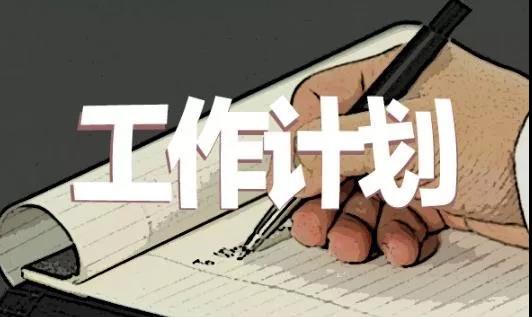pointofview的中文是什么意思1 英[pɔintɔvvju:] 美[pɔɪntʌvvju] 名词观点 1.观点:根据他在*>(PointofView)节目里阐述的逻辑,布朗对下属不留情下面是小编为大家整理的point,of,view中文是什么意思3篇【完整版】,供大家参考。

point of view的中文是什么意思1
英 [pɔint ɔv vju:] 美 [pɔɪnt ʌv vju]
名词 观点
1. 观点:根据他在*<<观点>>(Point of View)节目里阐述的逻辑,布朗对下属不留情面,恰恰显示他属于头一类人. 在我碰到的所有评论中,最简短的只说,沙马的一番论述跟爱尔兰作家乔伊斯(James Joyce,1882 - 1941)最后那本小说<<芬尼根守灵>>(Finnegans Wake)差不多,
2. point of view:pov; 观点,看法〖网语〗
point of view的中文是什么意思2
1. His point of view was echoed by Xie Dapeng, a leading official of the Party school of the Dehong prefectural commi* of the Party.
2. " He was actually a very good calligrapher even from my point of view today, " said Xu.
3. Campion plans to tell the story from Brawne"s point of view.
4. But Yao saw the format change from a different point of view.
5. Nor will we convert them to our point of view through force of argument and ideological conviction.
6. From the government"s point of view, corporate income tax is a cheap and effective way of raising revenue.
7. This might be termed perfect counterpoint from the point of view of music programming.
8. It is a world order crisis and depending on one"s point of view it is the sad end or good riddance of an era.
9. Zhou said he appreciates the design from a professional point of view.
10. In her point of view, a simple pigtail wouldn"t take a long time to do up.
point of view的中文是什么意思3篇扩展阅读
point of view的中文是什么意思3篇(扩展1)
——单词point是什么中文意思3篇
单词point是什么中文意思1
英 [pɔɪnt] 美 [pɔɪnt]
名词 点; 要点; 得分; 标点
及物动词 (意思上)指向; 削尖; 加标点于; 指路
不及物动词 指向; 表明
例句
1. There"s no point in wasting time.
耗时间没用。
2. It was a turning point in his career.
这是他事业上的转折点。
3. Stop at this point.
停在此地。
单词point是什么中文意思2
1. 罗经(方位)点
The points of the compass are directions such as North, South, East, and West.
e.g. Sightseers arrived from all points of the compass.
观光者来自四面八方。
2. (铁轨的")轨尖,道岔
On a railway track, the points are the levers and rails at a place where two tracks join or separate. The points enable a train to move from one track to another.
e.g. ...the rattle of the wheels across the points.
驶过道岔的车轮发出的哐啷哐啷声
3. 插座
A point is an electric socket.
e.g. ...too far away from the nearest electrical point.
离最近的电掣位也太远
4. (用手指)指
If you point at a person or thing, you hold out your finger towards them in order to make someone notice them.
e.g. I pointed at the boy sitting nearest me...
我指了指坐得离我最近的男孩。
e.g. He pointed at me with the stem of his pipe...
他用烟斗柄指着我。
5. 把…对准;使朝向
If you point something at someone, you aim the tip or end of it towards them.
e.g. David Khan pointed his finger at Mary...
戴维·卡恩用手指指着玛丽。
point of view的中文是什么意思3篇(扩展2)
——单词point的中文是什么意思3篇
单词point的中文是什么意思1
英 [pɔɪnt] 美 [pɔɪnt]
第三人称单数:points第三人称复数:points现在分词:pointing过去分词:pointed过去式:pointed
名词 点; 要点; 得分; 标点
及物动词 (意思上)指向; 削尖; 加标点于; 指路
不及物动词 指向; 表明
相关例句
及物动词
1. She pointed the pencil for her sister.
她给妹妹削铅笔。
不及物动词
1. The hands of the clock now pointed to half past three.
这时钟的指针指向三点半。
名词
1. There"s no point in wasting time.
耗时间没用。
2. It was a turning point in his career.
这是他事业上的转折点。
3. Stop at this point.
停在此地。
单词point的中文是什么意思2
1. 观点;看法;论点
You use point to refer to something that someone has said or written.
e.g. We disagree with every point Mr Blunkett makes...
布伦基特先生提出的观点我们一个都不同意。
e.g. Dave Hill"s article makes the right point about the Taylor Report...
戴夫·希尔的文章对《泰勒报告》的看法是正确的。
2. 论据;道理
If you say that someone has a point, or if you take their point, you mean that you accept that what they have said is important and should be considered.
e.g. "If he"d already killed once, surely he"d have killed Sarah?" She had a point there...
“如果他杀过一次人,那他一定已经杀了萨拉吧?”她说得有道理。
e.g. Oh I take your point, John, about that.
噢,约翰,关于那一点,我觉得你说得对。
3. 要点;核心问题
The point of what you are saying or discussing is the most important part that provides a reason or explanation for the rest.
e.g. "Did I ask you to talk to me?" — "That"s not the point."...
“我请你跟我谈了吗?”——“问题不在这儿。”
e.g. The American Congress and media mostly missed the point about all this.
美国国会和媒体大都没搞清这一切的核心问题。
4. 意义;目的;作用
If you ask what the point of something is, or say that there is no point in it, you are indicating that a particular action has no purpose or would not be useful.
e.g. What was the point of thinking about him?...
想他有什么用呢?
e.g. There was no point in staying any longer.
再留下来就没有意义了。
5. 细节;方面;特性
A point is a detail, aspect, or quality of something or someone.
e.g. Many of the points in the report are correct...
报告中的很多细节是正确的。
e.g. The most interesting point about the village was its religion...
这个村庄最有意思的`地方就是它的宗教。
point of view的中文是什么意思3篇(扩展3)
——英语point的中文是什么意思 (菁选2篇)
英语point的中文是什么意思1
名词 点; 要点; 得分; 标点
及物动词 (意思上)指向; 削尖; 加标点于; 指路
不及物动词 指向; 表明
英 [pɔɪnt] 美 [pɔɪnt]
第三人称单数:points第三人称复数:points现在分词:pointing过去分词:pointed过去式:pointed
英语point的中文是什么意思2
1. We also point out that very good quality Canned Mushrooms is available in our market from several European manufacturers, all of them are at prices from 5%-10% below yours.
需要指出的是,在我们的市场中也有一些欧洲生产商提供的"优质蘑菇罐头。它们的价格普遍比贵公司的低5%-10%。
2. It is currently removable as I m unsure, at this point, if access below will be needed.
这是目前移动作为我不确定,在这一点上,如果访问下面将需要。
3. You missed the point: His code can"t be taken from him even in death.
你错过了点:他的代码不能甚至在死亡从他被拿。
4. It`s a new team, everything is brand new, it`s the first time for Toro Rosso and finally the first point.
这是一只新车队,一切都是新的。对红牛之队来说是终于拿到了自己的首枚积分。
5. Methods According to the dissection features of transverse process and transverse process anteroartery, we point out that should be paid attention to treat No.3 lumbar vertebral transverse process syndrome with loosening therapy.
根据腰椎横突、横突前动脉的解剖关系,指出松解疗法在治疗腰三横突综合征的注意点。
6. However, where was to start? Who was to point out a way for me?
可是,又该从何寻起,谁来为我指条明路?
7. In the first chapter, we review the history of ab initio calculations and GW approximation, and point out the merit of GW approximation.
在第一章中,回顾了从头算和GW近似的历史,并指出GW近似的优点。
point of view的中文是什么意思3篇(扩展4)
——how are you的中文是什么意思
how are you的中文是什么意思1
how are you的中文意思
英[hau ɑ: ju:]
美[ha e(r) ju]
[词典] 你好;
how are you的双语例句
1. It was a root pairs of strains of holly, higher than the eaves, leaves dense seamless, dark green light, in the winter, with bamboo light green color of show scenery, giving a good impression to leave, it will enable you germinal Prose The inspiration, though not as earth-shattering story of the source, from the cuttings to grow together in prayer for the two thick trees, the growth of its history, after the number of wind and rain, how many spent the winter and spring, winter does not fade dark green in color, hair can not count the new spring shoots, there are hundreds of thousands of young leaves crowded old leaves, people unknown knowing it.
那是一个根的双株冬青,高过房檐,叶密无缝,墨绿发光,在冬天里,与竹的淡绿各展色景,给人留下美好的印像,它能令你生发散文的灵感,虽然不会成为惊天动地的故事之源,从插枝到成长为两根合掌粗的树,它的生长史,经过了多少风和雨,度过了几多冬与春,冬不褪墨绿的本色,春发不可计数的新枝条,又有千千万万的幼叶挤老叶,人不可知它自知。
2. A:How are you doing with your English Language studies?
你的英语学得怎么样了?
3. The important factors to consider when selecting an electric bike are battery life (which determines how far you can travel on a charge), speed, and durability.
重要的考虑因素时,选择一个电动自行车的电池寿命(确定多远,您可以旅行的费用),速度和耐用性。
4. How old are you? I"m fifteen.
你多大了?我15岁。
5. If you are the creative type, we also have instructions to help you design your own style sheet for the Administration Panels, and even how to turn your
如果你属于创新性类型的人,我们也有一些指示说明,帮助你设计自己的管理面板的样式,甚至帮助你怎样将
6. How are you today I`m fine/super/ great /so-so!
你今天好吗?我很好/非常好/一般。
7. How are you doing with your English Language studies?
你的英语学得怎么样了?
how are you的回答
那么标准答案就这一个,如果我想表达不同的`心情,用什么回答比较好呢?
首先我们要明白“How are you?”的使用情景:
通常在二人会面时询问,作为打招呼的方式之一,如果你正巧碰到你的朋友正在经历些不好的事,比如他摔了一跤,你就不要使用“How are you?”了~
除了“How are you?”,还有以下几种打招呼的问法:
“How are you doing?”
“What"s up, man?"
“How was your day?”
无论以上哪种问法,当你回答近况时,最好不要只学会一句“I am fine thank you,and you?”。
首先,如果你最近过得比较好,甚至想跟你的朋友一起分享,你可以回答:
1.I"m great thanks. Listen,……
2.I feel amazing,……
过得一般般,一切正常,可以这么说:
1.Not too bad!
2.Can"t complain! / Mustn"t grumble!
最后,如果过得不好,需要倾诉,可以这么说:
1.Pretty bad!
2.Awful!
3.worse!
point of view的中文是什么意思3篇(扩展5)
——developing的中文是什么意思3篇
developing的中文是什么意思1
英 [dɪˈveləpɪŋ] 美 [dɪˈvɛləpɪŋ]
原级:develop第三人称单数:develops过去分词:developed过去式:developed
形容词 开发; 发展中的; 显色; 显像
情景对话
咨询
A:The last order didn‘t work out too well for us
上回订的货用起来不怎么顺。
B:What was wrong?
有什么问题吗?
A:We were developing too much waste .
生产出来的废品太多了。
B:I suggest you go up to our next higher price level.
我建议您采用我们价格再高一级的货
developing的中文是什么意思2
1. The way we"ve done that is not only through our own development but by developing business partnerships as well.
2. He said the Renminbi business is developing healthily in Hong Kong, and by the end of April 38 banks in Hong Kong had opened Renminbi business.
3. He said the company will accelerate the pace of developing the GSM business, in which China Unicom had 128 million users by the end of last month.
4. What now makes him proud and excited is developing the business in China, a land where he saw " opportunities and future " for Wall Street English.
5. " The CBRC has always supported trust companies developing property business in accordance with the law, " the commission said.
6. Lam said the bank hopes to focus on developing its loan business in southern China, while its main operations in the north will be taking in deposits.
7. China"s central bank issued a directive yesterday aimed at increasing regulations of the housing loan business after problems in developing the market.
8. Not one to twiddle his thumbs, Zhang has been busy expanding Sohu"s business scope and developing new markets.
9. Developing the individually owned business sector will take more than just reforming management fees, says an article in Yanzhao Metropolis Daily.
point of view的中文是什么意思3篇(扩展6)
——how are you的中文是什么意思3篇
how are you的中文是什么意思1
how are you的中文意思
英[hau ɑ: ju:]
美[ha e(r) ju]
[词典] 你好;
how are you的双语例句
1. It was a root pairs of strains of holly, higher than the eaves, leaves dense seamless, dark green light, in the winter, with bamboo light green color of show scenery, giving a good impression to leave, it will enable you germinal Prose The inspiration, though not as earth-shattering story of the source, from the cuttings to grow together in prayer for the two thick trees, the growth of its history, after the number of wind and rain, how many spent the winter and spring, winter does not fade dark green in color, hair can not count the new spring shoots, there are hundreds of thousands of young leaves crowded old leaves, people unknown knowing it.
那是一个根的双株冬青,高过房檐,叶密无缝,墨绿发光,在冬天里,与竹的淡绿各展色景,给人留下美好的印像,它能令你生发散文的灵感,虽然不会成为惊天动地的故事之源,从插枝到成长为两根合掌粗的树,它的生长史,经过了多少风和雨,度过了几多冬与春,冬不褪墨绿的本色,春发不可计数的新枝条,又有千千万万的幼叶挤老叶,人不可知它自知。
2. A:How are you doing with your English Language studies?
你的英语学得怎么样了?
3. The important factors to consider when selecting an electric bike are battery life (which determines how far you can travel on a charge), speed, and durability.
重要的考虑因素时,选择一个电动自行车的电池寿命(确定多远,您可以旅行的费用),速度和耐用性。
4. How old are you? I"m fifteen.
你多大了?我15岁。
5. If you are the creative type, we also have instructions to help you design your own style sheet for the Administration Panels, and even how to turn your
如果你属于创新性类型的人,我们也有一些指示说明,帮助你设计自己的管理面板的样式,甚至帮助你怎样将
6. How are you today I`m fine/super/ great /so-so!
你今天好吗?我很好/非常好/一般。
7. How are you doing with your English Language studies?
你的英语学得怎么样了?
how are you的回答
那么标准答案就这一个,如果我想表达不同的`心情,用什么回答比较好呢?
首先我们要明白“How are you?”的使用情景:
通常在二人会面时询问,作为打招呼的方式之一,如果你正巧碰到你的朋友正在经历些不好的事,比如他摔了一跤,你就不要使用“How are you?”了~
除了“How are you?”,还有以下几种打招呼的问法:
“How are you doing?”
“What"s up, man?"
“How was your day?”
无论以上哪种问法,当你回答近况时,最好不要只学会一句“I am fine thank you,and you?”。
首先,如果你最近过得比较好,甚至想跟你的朋友一起分享,你可以回答:
1.I"m great thanks. Listen,……
2.I feel amazing,……
过得一般般,一切正常,可以这么说:
1.Not too bad!
2.Can"t complain! / Mustn"t grumble!
最后,如果过得不好,需要倾诉,可以这么说:
1.Pretty bad!
2.Awful!
3.worse!
point of view的中文是什么意思3篇(扩展7)
——housing的中文是什么意思3篇
housing的中文是什么意思1
英 [ˈhaʊzɪŋ] 美 [ˈhaʊzɪŋ]
第三人称复数:housings
名词 房屋; 供给住宅; 掩护; 外罩
例句
1. Many immigrants here are living in bad housing.
这儿有许多移民住在破败的房屋里。
2. There is an acute housing shortage in our city.
我们市里房荒问题很严重。
3. What are housing conditions like in your town now?
你们镇上现在住房情况如何?
housing的中文是什么意思2
1. China"s central bank issued a directive yesterday aimed at increasing regulations of the housing loan business after problems in developing the market.
2. The housing market in China is subject to several taxes, from land appreciation tax and arable land occupation tax to stamp tax and business tax.
3. Stabilizing the housing market is a noble and desired goal, and bunches of borrowers hurt by the bust genuinely need help.
4. Many of the highest jobless rates were concentrated in California, which got walloped after the booming housing market went bust.
5. California and Nevada have been slammed by the housing bust, while Rhode Island has lost thousands of manufacturing and government jobs in the past year.
6. Beijingers and expats are buying up properties this month before the possible end of a citywide stimulus housing policy.
7. Compared with the inexpensive " buying price " of land, housing prices in the area is very high.
8. I find that buying my own apartment is a luxury now due to high housing price.
9. It would mean public housing tenants who had been buying up private properties suddenly had found an attractive alternative.
point of view的中文是什么意思3篇(扩展8)
——negative的中文是什么意思3篇
negative的中文是什么意思1
英[negtv] 美[nɡtv]
第三人称单数:negatives 第三人称复数:negatives 现在分词:negativing 过去分词:negatived 过去式:negatived
形容词 消极的,否认的;[数]负的;[心]反抗性的; 无预期结果的
名词 否定词语; 否定的观点; 消极性; [摄]底片
及物动词 否定; 拒绝
相关例句
形容词
1.He gave me a negative answer.
他给了我一个否定的答案。
2.The tests for hepatitis were negative.
肝炎检查结果是阴性。
及物动词
1.The deep mud negatived all the efforts to advance.
这路太泥泞使所有前进的努力都白费劲。
2.The bill was negatived.
这议案遭到了否决。
point of view的中文是什么意思3篇(扩展9)
——英语next的中文是什么意思
英语next的中文是什么意思1
英 [nekst] 美 [nɛkst]
形容词 紧接在后的; 次于的; 贴近的; 紧邻的
副词 接下去; 然后; 居后地; 依次的
名词 下一个; 下一位
介词 靠近; 居于…之后; 在…的隔壁
1. 紧接在后的;接下去的
The next period of time, event, person, or thing is the one that comes immediately after the present one or after the previous one.
e.g. I got up early the next morning.
第二天早晨我早早地起床了。
e.g. ...the next available flight...
下一趟可搭乘的航班
2. 紧接在后的;下一个的
You use next in expressions such as next Friday ,next day and next year to refer, for example, to the first Friday, day, or year that comes after the present or previous one.
e.g. Let"s plan a big night next week...
我们下周组织一次盛大的晚会吧。
e.g. He retires next January...
他明年一月退休。
3. 紧邻的;贴近的
The next place or person is the one that is nearest to you or that is the first one that you come to.
e.g. Grace sighed so heavily that Trish could hear it in the next room...
格雷斯重重的叹息声连隔壁房间的特里斯都能听见。
e.g. The man in the next chair was asleep...
邻座的男士睡着了。
【point,of,view中文是什么意思3篇【完整版】】相关文章:





